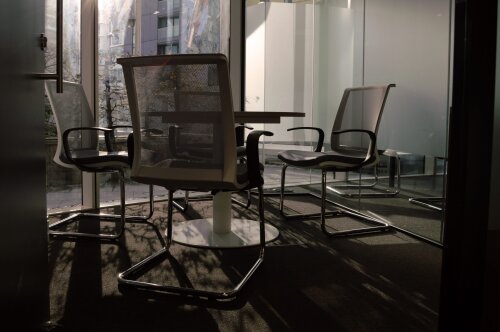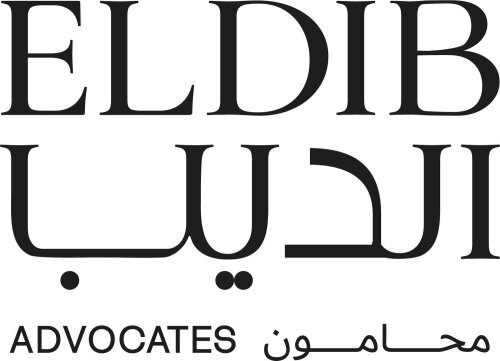Best Art & Cultural Property Law Lawyers in Cairo
Share your needs with us, get contacted by law firms.
Free. Takes 2 min.
List of the best lawyers in Cairo, Egypt
About Art & Cultural Property Law in Cairo, Egypt
Art & Cultural Property Law in Cairo, Egypt, is a specialized legal field that deals with the protection, preservation, and restitution of cultural heritage and artistic works. This field encompasses various legal aspects, including intellectual property rights, export and import regulations, as well as ownership and provenance issues related to artifacts, antiquities, and artworks. Given Egypt's rich historical and cultural legacy, the legal framework in Cairo is designed to safeguard both national heritage and the booming art industry.
Why You May Need a Lawyer
Individuals and organizations may seek legal assistance in Art & Cultural Property Law for several reasons:
- Provenance Verification: Ensuring the legal ownership and origin of artworks or cultural artifacts before purchase or sale.
- Export & Import Compliance: Navigating complex regulations involved in the international trade of cultural property.
- Restitution Claims: Pursuing the return of cultural property to rightful owners or countries of origin.
- Intellectual Property Disputes: Resolving issues related to copyright, trademark, or the misuse of cultural elements.
- Conservation and Restoration: Legal aspects concerning the preservation and restoration of artworks and cultural heritage.
Local Laws Overview
The legal landscape for Art & Cultural Property Law in Cairo is influenced by several national and international legal frameworks:
- Law No. 117 of 1983 (Protection of Antiquities Law): This law governs the protection and management of Egypt's archaeological and cultural heritage.
- Intellectual Property Rights: Egypt is a member of international agreements such as the Berne Convention, which influences local laws concerning artistic works.
- UNESCO Conventions: Egypt is a signatory to various UNESCO conventions aiming to protect cultural property during both peacetime and conflict.
- Customs Regulations: These are specific rules underlining the legalities of importing and exporting cultural and artistic works.
Frequently Asked Questions
What qualifies as cultural property under Egyptian law?
Cultural property generally includes antiquities, artifacts, and artworks that hold archaeological, artistic, or historical significance.
Can I legally buy and export an artifact from Egypt?
It is challenging to legally export cultural artifacts from Egypt. You must comply with stringent export regulations and often require government approval.
How can I verify the provenance of an artwork?
A lawyer specializing in art law can assist in conducting due diligence to verify provenance through documentation, expert consultations, and background checks.
What should I do if I discover an antiquity on my property?
Immediately report your finding to the Ministry of Antiquities. Egyptian law mandates the reporting and handling of such discoveries.
What protections exist for intellectual property rights in art?
Art is protected under Egypt's Intellectual Property Law, which includes copyrights for visual and performing arts, consistent with international treaties like the Berne Convention.
What are the legal procedures for reclaiming looted artifacts?
For reclaiming looted artifacts, legal steps typically include engaging with international bodies, government coordination, and sometimes litigation.
Are there specific laws for contemporary art in Egypt?
Contemporary art is generally governed by intellectual property laws and commercial regulations concerning art transactions and exhibitions.
Is cultural heritage protected in conflict situations?
Yes, Egypt adheres to the Hague Convention for the Protection of Cultural Property in the Event of Armed Conflict, which aims to safeguard cultural heritage during war.
What role do Egyptian laws play in art auctions?
Laws ensure transparency, legal provenance, and compliance with intellectual property rights related to artworks sold at auctions.
How can artists protect their rights in Egypt?
Artists can protect their rights by registering their works under the intellectual property law, seeking legal advice, and enforcing their rights in case of infringement.
Additional Resources
Here are some key resources and organizations that can offer further assistance related to Art & Cultural Property Law in Cairo:
- Ministry of Antiquities: Responsible for policies and regulations regarding antiquities and cultural heritage.
- Egyptian Copyright Office: Provides guidance on intellectual property registration and rights protection.
- The Egyptian Museum: Can be a resource for queries concerning artifacts and antiquities.
- UNESCO Cairo Office: An important partner in cultural property protection and education efforts.
Next Steps
If you require legal assistance in Art & Cultural Property Law in Cairo, consider the following steps:
- Consult a Lawyer: Seek advice from a lawyer specializing in art and cultural property law to understand your rights and obligations.
- Gather Documentation: Collect all relevant documents that provide context and background for your legal issue.
- File Necessary Applications: If applicable, ensure any necessary legal documents or permits are appropriately filed with relevant authorities.
- Stay Informed: Stay updated on changes in laws and regulations by liaising with experts and monitoring relevant news.
Lawzana helps you find the best lawyers and law firms in Cairo through a curated and pre-screened list of qualified legal professionals. Our platform offers rankings and detailed profiles of attorneys and law firms, allowing you to compare based on practice areas, including Art & Cultural Property Law, experience, and client feedback.
Each profile includes a description of the firm's areas of practice, client reviews, team members and partners, year of establishment, spoken languages, office locations, contact information, social media presence, and any published articles or resources. Most firms on our platform speak English and are experienced in both local and international legal matters.
Get a quote from top-rated law firms in Cairo, Egypt — quickly, securely, and without unnecessary hassle.
Disclaimer:
The information provided on this page is for general informational purposes only and does not constitute legal advice. While we strive to ensure the accuracy and relevance of the content, legal information may change over time, and interpretations of the law can vary. You should always consult with a qualified legal professional for advice specific to your situation.
We disclaim all liability for actions taken or not taken based on the content of this page. If you believe any information is incorrect or outdated, please contact us, and we will review and update it where appropriate.
















